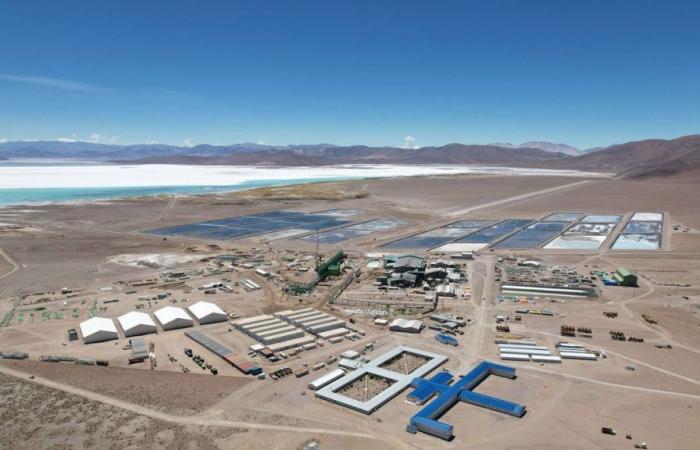June 16, 2024 – 01:47
The approval of the Base Law and with it the Incentive Regime for Large Investments (RIGI), generated dissimilar opinions among the different actors in the Catamarca mining sector. In this sense, the Chamber of Mining Suppliers of Catamarca raised their expectations regarding the promotion of the activity that this regime could generate, but they were cautious in maintaining that we must see how it is regulated. For their part, from the AOMA union, they directly indicated that the RIGI will be bad for the provinces.
In dialogue with “Tomorrow is today” (Radio Ancasti), the president of the Chamber of Mining Suppliers of the Province, Manuel Gómez Bello, was consulted about how the RIGI will impact local mining, especially the modification applied by the Senate of the Nation to the project that establishes that 20% of purchases and contracts must be for national suppliers. In this sense, he indicated that suppliers are “happy with the boost it will give to the industry,” however, he said that they are “attentive in monitoring the application of the standard.”
“It is positive for the industry in general but we must maintain and defend that the resources belong to the provinces and that in the regulations regarding social, environmental and contracting issues the main actor is the Province. The legal framework generated by the Nation is very good but we always have to refer to the Province on these issues,” said the representative.
Later, he indicated that the Chamber had been discussing the issue of RIGI not only in the province, but also with the federal table of mining suppliers and that in fact some changes were proposed from the table that were ultimately made. In this context, he expressed that the institution will support the application of the standard because “20% in local suppliers is very good but in the province there is 70 and 30% of buy and hire local.”
“What we have to define is based on what that 20% is. Whether it is in the total investment or purchases for services,” he said.
The representative once again highlighted the impact that the regime could have in the province by maintaining that interested companies have up to two years to join. “This somehow accelerates investment in the provinces that have this type of projects and at the moment we are experiencing not only the country and the reality of lithium is an impulse for them to end up investing,” he said and added that “the RIGI is thinking about the large metal projects that the country has and especially the province that has one of the most important in terms of copper.”
Finally, Gómez Bello announced that they will request a meeting with representatives of the provincial Executive to find out how the Province will adhere to the national standard. “Surely we will ask the Province for a meeting so we can chat and clear up some doubts. The regulations that currently exist in Catamarca are positive and were the ones that ended up encouraging suppliers and workers within the projects. We are fine, but there are always can improve and that is by talking,” he concluded.
For his part, the general secretary of AOMA, Gustavo Molina, spoke out against the RIGI and said that it will have negative consequences for the province. “We cannot celebrate this. It is said that it will generate work within four or five years. Perhaps as a leader I could say that we would be happy but as an Argentine the opposite,” he said in dialogue with “Mañana central” (Radio Ancasti) .
The union member maintained that the union institution carried out analyzes of how the RIGI and the Bases Law in general could impact the worker sector. According to him, the forecasts are not positive. “We have been talking with colleagues from other provinces about what is happening in the country and how the RIGI and the Bases Law have been approved, everything is a story and we will have to see if in four or five years it is actually good or not for the activity,” he said.
Molina questioned that with these regulations “natural resources are being handed over” and that “as Argentines we cannot be happy.”
“History has shown that large investments, and more like this regime, are not going to make the country better. SMEs are going to disappear, small suppliers are not going to have a place and they are not going to be able to be competitive,” he concluded. .
#Argentina






